#sir thomas wyatt
Explore tagged Tumblr posts
Text

Allington Castle, birthplace of Thomas Wyatt, in Allington, Kent, England
2 notes
·
View notes
Text

Sir Thomas Wyatt, from I Find no Peace
2 notes
·
View notes
Text
—Anne Boleyn to Thomas Wyatt
(Whoso List to Hunt)
me, flirting: you could probably catch me easily if you chased me through the forest
13K notes
·
View notes
Text
"I find no peace, and all my war is done. I fear and hope. I burn and freeze like ice. I fly above the wind, yet can I not arise; And nought I have, and all the world I seize on. That loseth nor locketh holdeth me in prison And holdeth me not—yet can I scape no wise— Nor letteth me live nor die at my device, And yet of death it giveth me occasion. Without eyen I see, and without tongue I plain. I desire to perish, and yet I ask health. I love another, and thus I hate myself. I feed me in sorrow and laugh in all my pain; Likewise displeaseth me both life and death, And my delight is causer of this strife." — Sir Thomas Wyatt's "I find no peace."
0 notes
Text
Whoso List to Hunt, I Know where is an Hind by Sir Thomas Wyatt
Whoso list to hunt, I know where is an hind,
But as for me, hélas, I may no more.
The vain travail hath wearied me so sore,
I am of them that farthest cometh behind.
Yet may I by no means my wearied mind
Draw from the deer, but as she fleeth afore
Fainting I follow. I leave off therefore,
Sithens in a net I seek to hold the wind.
Who list her hunt, I put him out of doubt,
As well as I may spend his time in vain.
And graven with diamonds in letters plain
There is written, her fair neck round about:
Noli me tangere, for Caesar's I am,
And wild for to hold, though I seem tame.
1 note
·
View note
Text
I leave off therefore, Since in a net I seek to hold the wind.
"Whoso list to hunt" - Sir Thomas Wyatt (~1530s)
#renaissance#poetry#Renaissance literature#Renaissance poetry#sir Thomas Wyatt#quotes#unrequited love#16th century
1 note
·
View note
Text
A poem by Sir Thomas Wyatt

Whoso list to hunt
Whoso list to hunt, I know where is an hind, But, as for me: hélas, I may no more. The vain travail hath wearied me so sore, I am of them, that farthest cometh behind. Yet may I by no means my wearied mind Draw from the deer; but as she fleeth afore Fainting I follow. I leave off therefore, Since in a net I seek to hold the wind. Who list her hunt, I put him out of doubt, As well as I, may spend his time in vain. And, graven with diamonds, in letters plain, There is written, her fair neck round about: Noli me tangere, for Caesar's I am, And wild for to hold - though I seem tame.

Sir Thomas Wyatt (1503-1542)
Glossary:
Whoso = whoever. list = desires. hind = a female deer. helas = a variant form of 'Alas'. Noli me tangere = Do not touch me (Latin). For Caesar's I am = I belong to the King.
Note: Possibly the poem refers to Anne Boleyn, with whom Wyatt had a relationship before King Henry VIII became interested in her. Wyatt is supposed to have warned the King against her as she was too free with her favours. According to Solinus, white stags were found 300 years after Caesar's death, their collars inscribed with the command: Noli me tangere, Caesaris sum – Do not touch me, I am Caesar's.
Image: Anne Boleyn by Unknown English artist oil on panel, late 16th century, (National Portrait Gallery)
0 notes
Text
And from the mind I will not flee,
but to you all that misjudge me,
I do protest as Ye may see,
that I am as I am and so will be.
- Sir Thomas Wyatt, I Am As I Am
0 notes
Text

Sonnets 📚
“Whoso list to hunt, I know where is an hind,
But as for me, hélas, I may no more.
The vain travail hath wearied me so sore,
I am of them that farthest cometh behind.”
——
Sir Thomas Wyatt, ‘Whoso List to Hunt‘ 📖
#Art 🎨 by Serfixx
0 notes
Audio
(Peacock's Tale folk indie duo)
#SoundCloud#music#Peacock's Tale folk indie duo#Anne Boleyn#Blickling Hall#Henry VIII#Sir Thomas Wyatt
1 note
·
View note
Text
OTTERSHAW PARK
The mansion






Hi guys!!
I'm sharing Ottershaw Park. This is the 18th building for my English Collection.
I decorated most of the house ground floor, for reference.
The interiors:











History of the house: In 1784 Thomas Sewell died and ownership of Ottershaw Park passed to his son, Thomas Bailey Heath Sewell, Lieutenant Colonel in the Surrey Fencible Cavalry. He sold it in 1796 to Edmund Boehm who improved the interior of the house and enlarged the estate by buying tracts of wasteland and allotments.
In about 1805 Boehm built, to the design of the eminent architect James Wyatt, two Grecian-style lodges at the new entrance to the estate from where a coach road ran to the mansion. The same architect may also have designed for Boehm the Gothic Chapel which originally served as a kitchen, bake house, dairy and pantry but was demolished in 1962.
Ottershaw Park was bought in 1819 by Major General Sir George Wood, a Lieutenant General in the Bengal Army. At this time the estate was largely self-supporting with stables, smithy, brew house, bake house, laundry, dairy, slaughter houses, ice house and two farms.
Sir George died in 1824 and the estate passed to his son, also named George, who in 1841 sold the property to Richard Crawshay who built a new bailiff’s house, farm buildings and brew house.
On Crawshay’s death in 1859 the estate was bought by Sir Thomas Edward Colebrooke MP, who made a number of alterations to the mansion. He also gave the money and land for the building of Christchurch and the first village school.
The estate was later sold to Lawrence James Baker, a stockbroker and MP who sold it in 1910 to the millionaire, Friedrich Gustav Jonathan Eckstein. Eckstein demolished the old mansion and replaced it with the present building designed by Niven & Wigglesworth which is more magnificent and much larger.
During World War I Eckstein made the building available to the British Red Cross as an Auxiliary Home Hospital but soon after the war sold it to Miss Susan Dora Cecilia Schintz, the daughter of a Swiss nitrates millionaire. Miss Schintz lost most of her sizeable inheritance through gifts to charity and bad investments and finally had to sell the estate. Much of it was acquired by the Ottershaw Park Investment Company (OPIC) which planned to develop the rim of the estate for housing. In 1932 the mansion and central part of the park became Ottershaw College, a boarding school for boys which for a short time was very successful, but eventually became insolvent and finally closed at the outbreak of World War II.
During the war The Vacuum Oil Company leased the mansion as offices and laboratories. From 1940 much of the surrounding land was either ploughed for crops or grazed as part of the war effort and the woodland areas were used by the 19 Vehicle Reserve Depot (VRD) for storing vehicles.
The Vacuum Oil Company moved back to London at the end of 1947 and Surrey County Council established Ottershaw School which was opened in 1948. The school prospered until 1980 when it closed due to financial constraints.
In 1982 the developers DeltaHome converted the mansion and other buildings into the present residential estate.
Link: https://www.exploringsurreyspast.org.uk/themes/places/surrey/runnymede/ottershaw/ottershaw_park_estate/
The garden:








More info: https://www.exploringsurreyspast.org.uk/themes/places/surrey/runnymede/ottershaw/ottershaw_park_estate/
The floorplan:




This house fits a 64x64 lot, but I think you can make it a 50x40 if you lose part of the garden and the conservatories on each side.
Piano nobile furnished, the rest is up to your liking.
Hope you like it.
You will need the usual CC I use:
all Felixandre cc
all The Jim
SYB
Anachrosims
Regal Sims
King Falcon railing
The Golden Sanctuary
Cliffou
Dndr recolors
Harrie cc
Tuds
Lili's palace cc
Please enjoy, comment if you like the house and share pictures of your game!
Follow me on IG: https://www.instagram.com/sims4palaces/
@sims4palaces
DOWNLOAD (only members-free to download)
#sims 4 architecture#sims 4 build#sims4#sims 4 screenshots#sims4building#sims 4 historical#sims4play#sims4palace#ts4#ts4 download#ts4 simblr#ts4 gameplay#ts4 screenshots#the sims 4#the sims community#sims 4#the sims#sims 4 gameplay#simblr#simblog#british history#stately home#sims4statelyhome
65 notes
·
View notes
Photo

Wyatt Rebellion
The Wyatt Rebellion of January-February 1554 CE saw Sir Thomas Wyatt the Younger lead a group of several thousand Kent rebels in a march on London with the primary aim of preventing Mary I of England (r. 1553-1558 CE) from marrying Spain's Prince Philip (l. 1527-1598 CE). There was, too, the secondary aim - never openly declared - of replacing Mary with her younger half-sister Elizabeth Tudor (b. Sep. 1533 CE). The rebels were also motivated by the fall in living standards in England caused by inflation, food shortages, the decline in trade (especially of cloth), and several waves of deadly epidemics. The rebellion failed thanks to Mary's armed response and a general lack of support from the people of London. The leaders, including Wyatt, were executed and so was Mary's cousin Lady Jane Grey (b. Oct. 1537 CE) just in case she became a figurehead for future rebellions. For the same reason, Elizabeth was detained in the Tower of London. Mary then went on to vehemently persecute her enemies whom she identified as Protestant heretics, thereby earning her lasting nickname 'Bloody Mary'.
Mary I's Succession
Mary I of England had succeeded her brother Edward VI of England (r. 1547-1553 CE), although she had almost been the victim of a coup d'etat in July 1553 CE when John Dudley, the Earl of Northumberland (l. 1504-1553 CE) tried to install Mary's cousin Lady Jane Grey (1537-1554 CE) as queen. Lady Jane was Protestant and Mary Catholic so that each represented the interests of the two sides which had split England ever since Mary's father Henry VIII of England (r. 1509-1547 CE) had separated the Church in England from Rome and the Pope. As it turned out, the vast majority of nobles and the commoners preferred to honour Henry VIII's wish that Mary succeed Edward if he were without children. Legitimacy and direct ties of royal blood triumphed over any religious considerations. However, Mary convinced herself that her initial popularity was because she proposed to return her kingdom to Catholicism by reversing the English Reformation that had been ongoing under her two predecessors, starting with the First Act of Repeal of 1553 CE; she had, thought Mary, been chosen by both the people and God. However, the air of optimism that had surrounded Mary's succession was soon to become fouled by the treacherous stench of rebellion.
Continue reading...
21 notes
·
View notes
Text
Partial list of the books that Helene Hanff ordered from Marks & Co. and mentioned in 84, Charing Cross Road (alphabetical order):
Austen, Jane. Pride and Prejudice, (1813)
Arkwright, Francis trans. Memoirs of the Duc de Saint-Simon
Belloc, Hillaire. Essays.
Catullus – Loeb Classics
Chaucer, Geoffrey The Canterbury Tales translated by Hill, published by Longmans 1934)
Delafield, E. M., Diary of a Provincial Lady
Dobson, Austen ed. The Sir Roger De Coverley Papers
Donne, John Sermons
Elizabethan Poetry
Grahame, Kenneth, The Wind in the Willows
Greek New Testament
Grolier Bible
Hazlitt, William. Selected Essays Of William Hazlitt 1778 To 1830, Nonesuch Press edition.
Horace – Loeb Classics
Hunt, Leigh. Essays.
Johnson, Samuel, On Shakespeare, 1908, Intro by Walter Raleigh
Jonson, Ben. Timber
Lamb, Charles. Essays of Elia, (1823).
Landor, Walter Savage. Vol II of The Works and Life of Walter Savage Landor (1876) – Imaginary Conversations
Latin Anglican New Testament
Latin Vulgate Bible / Latin Vulgate New Testament
Latin Vulgate Dictionary
Leonard, R. M. ed. The Book-Lover's Anthology, (1911)
Newman, John Henry. Discourses on the Scope and Nature of University Education. Addressed to the Catholics of Dublin – "The Idea of a University" (1852 and 1858)
Pepys, Samuel. Pepys Diary – 4 Volume Braybrook ed. (1926, revised ed.)
Plato's Four Socratic Dialogues, 1903
Quiller-Couch, Arthur, The Oxford Book Of English Verse
Quiller-Couch, Arthur, The Pilgrim's Way
Quiller-Couch, Arthur, Oxford Book of English Prose
Sappho – Loeb Classics
St. John, Christopher Ed. Ellen Terry and Bernard Shaw : A Correspondence / The Shaw – Terry Letters : A Romantic Correspondence
Sterne, Laurence, The Life and Opinions of Tristram Shandy, Gentleman, (1759)
Stevenson, Robert Louis. Virginibus Puerisque
de Tocqueville, Alexis Journey to America (1831–1832)
Wyatt, Thomas. Poems of Thomas Wyatt
Walton, Izaak and Charles Cotton. The Compleat Angler. (John Major's 2nd ed., 1824)
Walton, Izaak. The Lives of – John Donne – Sir Henry Wotton – Richard Hooker – George Herbert & Robert Sanderson
Woolf, Virginia, The Common Reader, 1932.
14 notes
·
View notes
Text
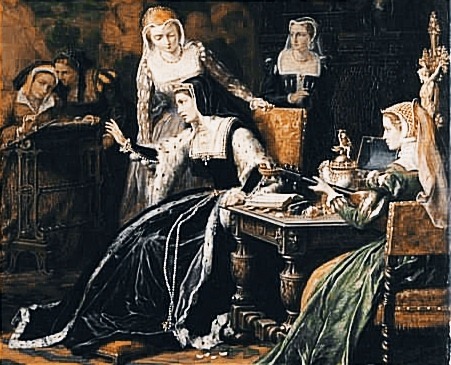
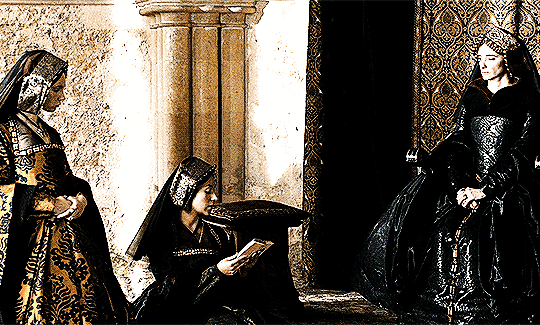
Katharine considered herself the King’s wife until the end. The law in England forbade married women to write their last wills, but Katharine dictated a document similar to a testament in which she made several bequests and settled her debts. It is clear that Katharine still owned valuable possessions such as gold and silver jewellery and luxurious gowns she wanted to be made into vestments for a convent of Observant Friars, where she desired to be buried. The bequests in Katharine’s last will reveal an intricate network of women who remained loyal to the former Queen, although it is clear that not all of these ladies served Katharine until her death. Katharine’s first bequest was to her favourite maid of honour, Elizabeth Darrell, who received £20 “for her marriage”. Elizabeth was a daughter of Sir Edward Darrell of Littlecote who served as Katharine of Aragon’s vice-chamberlain between 1517 and 1530. He died in March 1530, leaving his daughter under Katharine of Aragon’s protection. Elizabeth was one of the eight ladies in Katharine’s household who refused to swear an oath to Katharine as Princess Dowager of Wales, arguing that she swore an oath to Katharine as Queen and swearing other oaths would be equal to perjury. After Katharine’s death, Elizabeth became the mistress of Sir Thomas Wyatt, the famous Tudor poet, and found a new employer in the person of Gertrude Courtenay, Marchioness of Exeter. Other women mentioned in Katharine of Aragon’s testament were Blanche Twyford, who received £10, Margery Otwell and Dorothy Whiller, who received £10 each, Mary de la Sa, wife of Katharine’s Spanish physician, who received £40, and Isabel Vergas, Katharine’s Spanish lady-in-waiting, who received £20. There were also “little maidens”, “Mistress Isabel, daughter of Mistress Margery” and a laundress. Little is known about these women except for their names. Some, like Isabel Vergas, who was recorded in the royal household as Katharine’s chamberer in 1511, must have been long-term servants, and trusted ones at that. Elizabeth Darrell, Margery Otwell, Blanche Twyford and Dorothy Whiller were among the eight ladies who refused to swear the new oath in 1533; they clearly remained staunchly supportive of Katharine, and it is highly likely that they served her in 1536. Katharine begged the King to safeguard the marriage portions for her unmarried maids, “they being but three”, and Henry clearly felt responsible for these women. In November 1539, Blanche Twyford was rewarded with £66 “for her long and painful service done unto the Princess Dowager”; whether other ladies were rewarded in the same manner remains unclear.
Sylvia Barbara Soberton, Great Ladies: The Forgotten Witnesses to the Lives of Tudor Queens
20 notes
·
View notes
Note
wolf hall (book and/or miniseries)
the characterization of francis weston...i actually feel like his characterization would've fit henry percy better (described as "light and hasty"-- that diverts to another thing i'd change, it was disappointing that mantel got so much of him correct, like his debts, and yet left no room to mention percy was often the source of some of the more vicious rumors about anne...instead it's always someone close to her, her family, like anne shelton and jane boleyn, that have such low opinions of her); i won't quibble with him being spirited and perhaps even shallow and extravagantly spendthrift (he was extremely privileged and only 25 when he died, after all); but having him be just so unequivocally nasty as to call cromwell's literal deceased daughters (to his and his son's face...?) ugly as sin just seemed way too easy a justification. she'd already written him into the wolsey farce to explain why cromwell picked from the cast to condemn those men in 1536, that just felt like laying it on too thick.
the device of cromwell promising parents on the edge of death to look out for their children to explain his actions ran thin by the time it was used for mary in tmatl (at that time, the second time it was used, already for wyatt). mantel should have chosen one or the other. even more realistically, i think cromwell's protection of wyatt should have been explained in the same way his protection of the future exeter players was used: he wanted him in his debt, he wanted to call on favors in the future.
the portrayal and arc of mary boleyn...as another reviewer put it:
"In Wolf Hall as in The Other Boleyn Girl Mary is the only uncalculating Boleyn, the only artless person at the Tudor court. [...] Although Mantel’s prose has been justly praised, this indignant speech could have been lifted right out of The Other Boleyn Girl or any other Tudor bodice-ripper that would not have made the Booker Prize shortlist. It’s as if, when we get to the Boleyn women [...] we’re always on the same terrain. [...] The best historical fiction, embellishes, invents, and excludes so that we see the past, and our relation to it, in a new way. Mantel’s novel may change how we look at Sir Thomas More and Thomas Cromwell. But her depiction of Mary Boleyn is the same old story."
there were a lot of things in the book that didn't really translate into the adaptation of the tv series, that were either abridged or altered or completely absent. i would've liked to see the scene from bring up the bodies after catherine of aragon's death, where anne discusses her stepdaughter, or the one earlier, where she says she understands catherine, because she would fight for everything she has for her daughter, as well. neither of those were in the tv series. in my estimation, cromwell is more blorbofied in the tv series than the books...it's not given enough space, but there are lines that attest to his ruthlessness, the executions of the 'right' men in ireland, for example, that i don't recall being given any space at all in the tv series. we get a sense of his personal life more than his political life, almost, in the tv series.
13 notes
·
View notes
Text
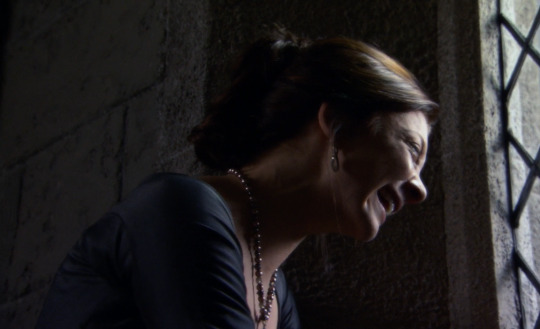

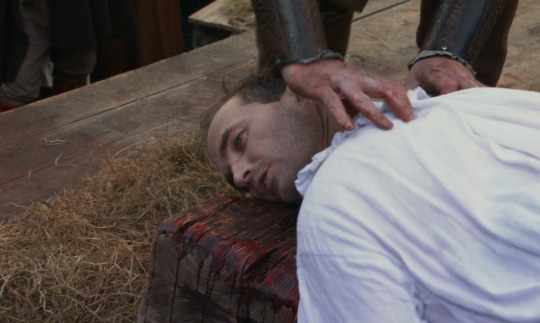

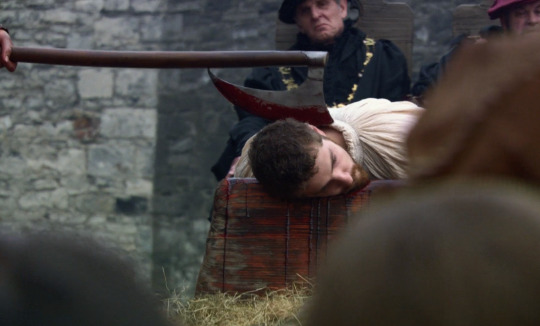
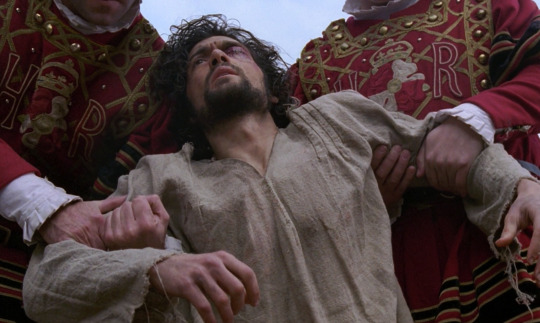
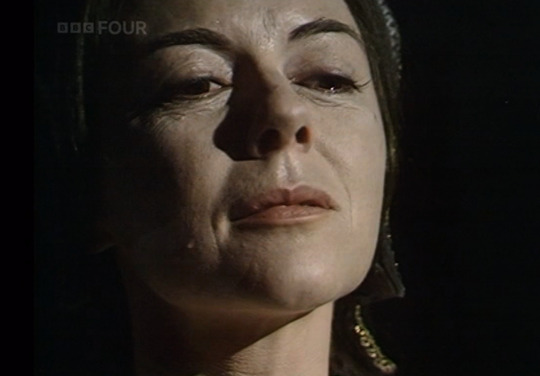
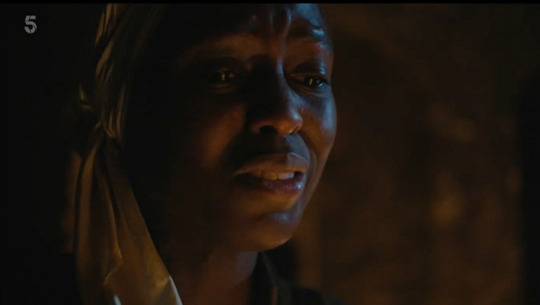
May 17, 1536 - The Executions of George Boleyn, Henry Norris, Sir Francis Weston, William Brereton, and Mark Smeaton
"Masters all, I am come hither not to preach and make a sermon, but to die. As the law hath found me, and to the law I submit me, desiring you all, and especially you, my masters of the court, that you will trust in God especially, and not in the vanities of the world. For if I had so done, I think I had been alive as ye be now. Also, I desire you to help … the setting forth of the true word of God. And whereas I am slandered by it, I have been diligent to read it and set it forth truly. But if I had been as diligent to observe it, and done and lived thereafter, as I was to read it and set it forth, I [would not have] come here. Wherefore I beseech you all to be workers and live thereafter, and not to read it and live not thereafter. As for mine offenses, it cannot prevail you to hear them that I die here for. But I beseech God that I may be an example to you all, and that all you may beware by me, and heartily I require you all to pray for me, and to forgive me if I have ever offended you. And I forgive you all. And God save the King." - George Boleyn's execution speech in Wriothesley's Chronicle
"Some say, 'Rochford, haddest thou been not so proud,
For thy great wit each man would thee bemoan,
Since as it is so, many cry aloud
It is great loss that thou art dead and gone." - Thomas Wyatt (?), In mourning since daily wise I increase
"These bloody days have broken my heart.
My lust, my youth did them depart,
And blind desire of estate.
Who hastes to climb, seeks to revert.
Of truth, circa regna tonat [about the throne, thunder rolls]." - Thomas Wyatt, Who list his wealth and ease retain
"Mr. Norris ... said almost nothing at all." - George Constantine
"I had thought to have lived in abomination yet these twenty or thirty years, and then to have made amends. I thought little it would have come to this." - Francis Weston's last words, as reported by Constantine
"I have deserved to die if it were a thousand deaths. But the cause wherefore I die, judge not. But if you judge, judge the best." - William Brereton's last words, as reported by Constantine
"Masters, I pray you all, pray for me, for I have deserved the death." - Mark Smeaton's last words, as reported by Constantine
Also on this day, Anne's marriage to Henry was annulled by Archbishop Cranmer, either on the grounds of a precontract with Henry Percy, Earl of Northumberland, or Henry's affair with her sister Mary before he met Anne.
#tw blood#tw torture#tudorerasource#perioddramaedit#dailytudors#anne boleyn#the tudors#natalie dormer#the six wives of henry viii#george boleyn#henry norris#william brereton#francis weston#mark smeaton#dorothy tutin#anne boleyn 2021#jodie turner smith#sorry this is a long post#but idk how to make it any shorter#I wanted to make a post which properly commemorated these 5 brave men#and let them speak in their own words#I've purposefully not used The Tudors for George Boleyn's execution bc#they rly cut his speech down and made it happen in front of a jeering mob which clearly didn't happen#since multiple people were able to transcribe such a long speech#so I used (ofc) TSWOH8 1970#RIP to these kings#:(
11 notes
·
View notes